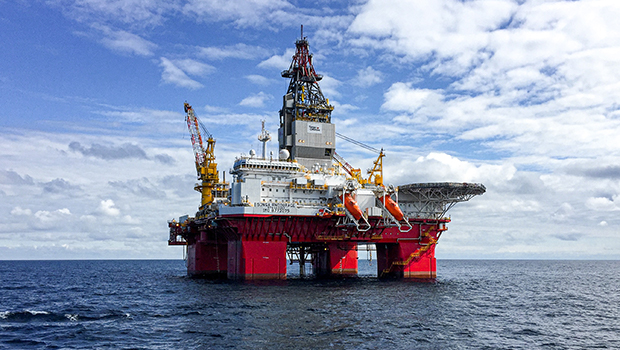
If someone were to tell you that one nation of the United Kingdom had over 60% of the jobs in the oil and gas sector, which one would immediately spring to mind? The one which has 90% of the UK’s offshore wealth in its waters or their neighbour to the South?
The Jobs Deficit
Yes, somehow, despite having the vast majority of the oil and gas off our coastline, the associated jobs have been systematically syphoned off to other parts of the UK. This is the real oil and gas robbery. Scottish towns and cities have been denied the benefit of high-paying jobs in the oil and gas sector while they have been dispersed to other parts of the UK over the last 50 years.
Did you ever look at Scotland in the 80s and 90s and wonder where the training opportunities for our youngsters to enter the oil and gas industry were? In the aftermath of Thatcher and the collapse of the mining industry, we could certainly have been doing with them. Growing up in the central belt of Scotland, in a former mining area, I certainly don’t recall seeing much about the oil and gas industry. The University of Aberdeen and Robert Gordon University had some courses that specialised in oil and gas , as you would expect but so too did Hull and Middlesbrough, around 300 and 400 miles from Aberdeen respectively. Source: UK Trade and Industry document.
The jobs that are actually in Scotland tend to be on the rigs themselves or in Aberdeen, but even within this number, the amount of the rig workers who are actually permanently domiciled in Scotland is maybe around half. So people work in Scotland and then return to England, Wales, NI or wherever they normally live, never spending the money they earned within Scotland. This means we go from Scotland (in theory) having 40% of the oil and gas jobs to Scotland only getting the actual economic benefit of having around 30%. Source: Oil and Gas UK image.
This may seem like a minor point but, that is around £630,380,000 annually denied to the Scottish economy (after tax, based on £31,519 average salary for oil rig workers.)
It is not only the oil revenues that Scotland has been denied for decades but lucrative jobs that should be a windfall for a country with natural resources. This is the true oil and gas robbery. Even supposing 60% of UK oil gas jobs were in Scotland it would be £1.5Billion per year extra flowing into our communities.
Corporation Taxes
Around a decade ago, a Lib Dem Government Minister let slip the following about the oil and gas industry:
“The industry supports 440,000 jobs directly or indirectly and paid £11.2 billion in direct taxes in 2011 – 2012, almost a quarter of all corporation taxes received by the Exchequer.”
The Rt Hon Edward Davey MP: Secretary Of State For Energy And Climate Change
Let me just say that again. “The Oil and Gas industry paid… almost a quarter of all corporation taxes received by the Exchequer.” Now admittedly, the number of jobs across the board has reduced in that time. As of 2019,the number of jobs had declined to 300,000 UK-wide but that still represents 120,000 jobs in Scotland compared to 180,000 jobs south of the border. This is still a hugely significant amount of corporation tax, as well as taxation on wages.
The McCrone Report
The Scottish oil and gas has propped up the UK ever since it was discovered in the early 70s. Scotland hit the natural lottery, we had more oil than Kuwait but the UK Government frittered it away. Successive UK Governments chose not to go down the route taken by the Norwegian Government which has seen them become one of the richest countries in the world and instead they chose not to put the money into an oil fund. We might very well wonder why there was no public oil company, was it to obfuscate the true extent of Scotland’s true oil wealth and hide it from the public?
A secret UK Government report from the 1970s, which was hidden from public view for 30 years, the McCrone report laid bare how rich an independent Scotland could have been with the correct geographical allocation of oil and gas revenues:
“The country would tend to be in chronic surplus to a quite embarrassing degree and its currency would become the hardest in Europe with the exception perhaps of the Norwegian kroner. Just as deposed monarchs and African leaders have in the past used the Swiss franc as a haven of security, as now would the Scottish pound be seen as a good hedge against inflation and devaluation and the Scottish banks could expect to find themselves inundated with speculative inflow of foreign funds.”
McCrone Report, 1974
Rising Cost of Living
As a country with ample oil and gas reserves, Scottish citizens should not be having to make the choice between heating and eating. Scotland is a net exporter of energy, it is the rest of the UK that is massively lacking in self-sufficiency and yet consumers in Scotland are being hit the hardest by rising bills because we live in the coldest climate. You only need to look at the Prime Minister’s recent announcement of eight new nuclear power stations to understand the scale of the problem facing the rest of the UK when Scotland leaves and we take our energy with us. In the meantime, each vastly expensive energy bill is subsidising the rest of the UK at the expense of both the health and wealth of the people who live here.
Steven Marwick is a freelance content writer based in Scotland. If you enjoy his work, he is available to hire on the Upwork freelancer portal. Alternatively, you can buy him a coffee on Ko-fi.
Comments Closed